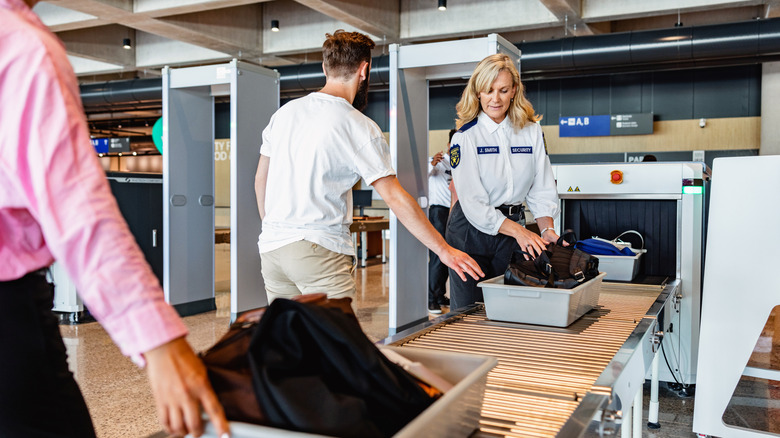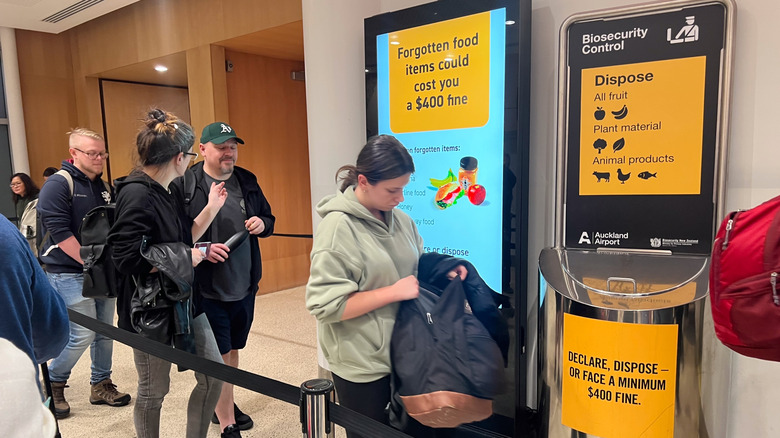The Popular Snack To Avoid Trying To Bring On A Plane Or You'll Face Problems With Customs
One of the last things you want when traveling is to have to deal with unnecessary stress and questions at customs. No matter where in the world you are, getting in and out of customs is a top priority. That's why it's always good to know when a seemingly innocuous item might make life difficult for you at international or U.S. security checks. You can actually save tons of time at customs after returning to the U.S. with this little-known trick. On the flip side, bringing whole bean coffee to the airport could make you a target — and it's not the only item. Fresh fruits and vegetables are notorious for getting people in trouble at airport security. The rules surrounding these products are quite specific, depending on where you're traveling and where you're coming from. If you're not aware of these rules, you may end up losing your snacks for the flight or worse.
Passengers traveling from the U.S. to Europe can only bring a small amount of fruit and vegetables. The European Commission doesn't specify a total amount or weight limit, but it's safer to pack less if you don't want it confiscated. Once in Europe, you're can bring fruit and vegetables with you while traveling between European Union countries, so long as you're not intending to sell them. Other countries have very different rules. In America, you can bring fruits and vegetables from anywhere in the continental U.S. except for Hawaii, Puerto Rico, or the Virgin Islands. Travel to Canada from the U.S. is a lot more relaxed, allowing up to 44 pounds of fruit and 44 pounds of veg, so you really don't have to worry about bringing too much. Australia and New Zealand have some of the strictest laws, not allowing any fresh fruit across their borders.
Why fresh fruits and vegetables are so restricted
You may be wondering why countries are so strict on fresh fruit and vegetables. It's because they're known for transporting diseases and pests. When these diseases and pests get transported within their country, they're not a threat. But when they're introduced into a new country, they can upend delicate ecosystems. It's the protection of this biosecurity that makes more countries enact rigid rules about what you can and can't bring in. Fruits and vegetables are just some of the many products that can threaten this biosecurity.
There are ways to avoid having your fruit or veg snacks confiscated at customs, or worse, getting fined. You can opt for other healthy snacks for your flight that won't risk you getting stopped, such as granola bars. Some countries, such as New Zealand and America, allow certain types of dried fruit. Figs, dates, and raisins are usually okay when entering the U.S. from abroad, but may be inspected at customs, taking a little more time than usual. For some destinations, you're also usually okay if you eat the fruit on the plane before it lands. It's only if you're still carrying the fruit when entering the country that you might get into trouble.
When carrying fruit into or out of America, you may also need to consider the carry-on liquid limitations, especially if your fruit is soft or in a mashed or liquid form. The same goes for other liquid snacks, such as yogurt, peanut butter, and dips. TSA's 3-1-1 rule has some unexpected exemptions that may make it easier for you to pack your fruit snacks alongside your other liquids. There's a game-changing TikTok hack that gets around TSA's liquid rules, which may also help. When in doubt, leave the fruit at home.

